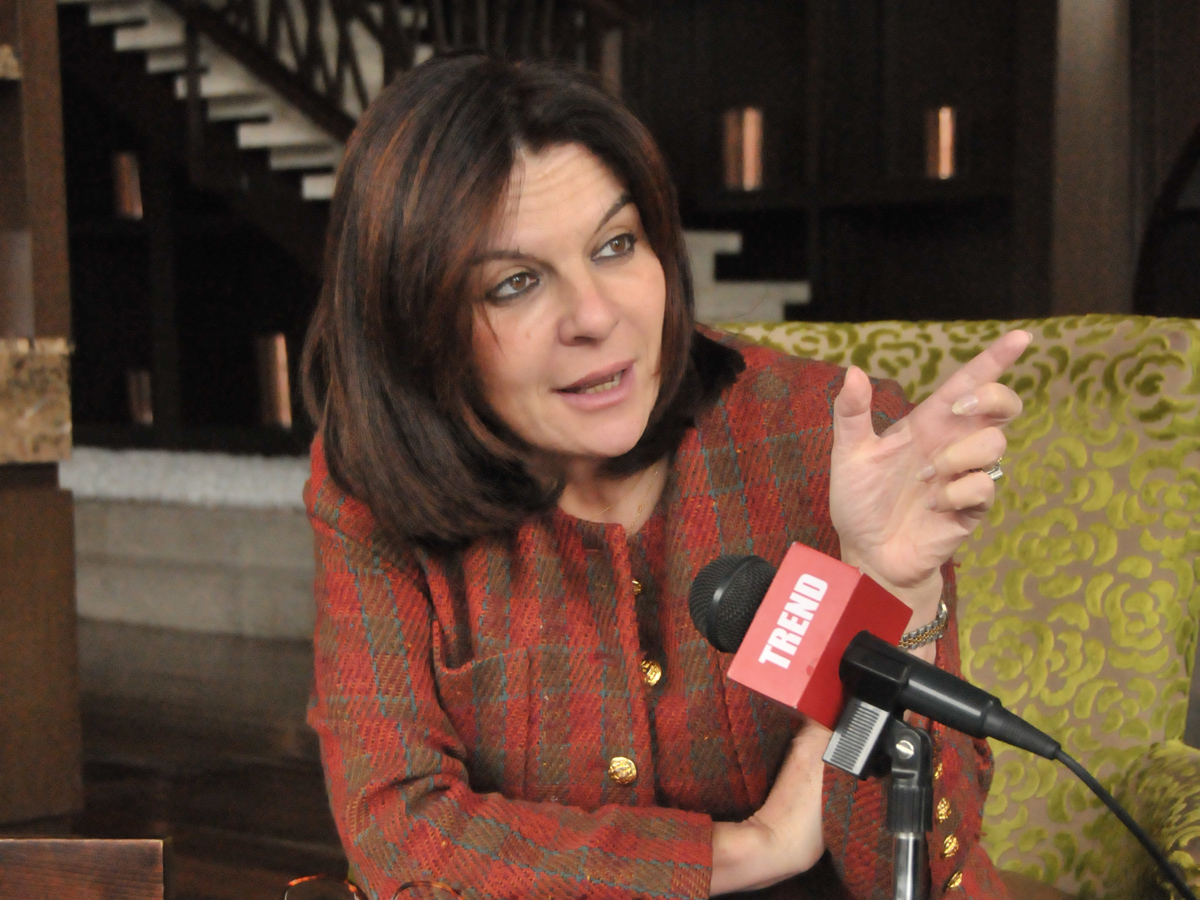Baku, Azerbaijan, May 2
By Dalga Khatinoglu - Trend:
As a self-imposed deadline for a comprehensive nuclear agreement between Iran and the P5+1 countries looms, the hopes for reaching a deal are getting higher.
Iran and the P5+1 group (the U.S., France, UK, Russia, China + Germany) are negotiating to reach a final nuclear agreement by June 30.
Iran's frozen assets abroad are closed to $100 billions, expected to be released after nuclear agreement.
Meanwhile, the member of the French Senate Commission for International Affairs Nathalie Goulet told Trend that Iran's post-sanctions development plans are huge and will offer potential for economic growth of Europe and others countries.
Iran and EU faced a significant drop in trade turnover during former Iranian President Mahmoud Ahmadinejad's time due to Tehran's disputed nuclear program and the country's hardliner MPs' aggressive foreign policy.
According to Iranian Customs, Europe had about 50 percent share in Iran's imports in 2005, as well as some 15 percent of Iran's total non-oil exports, however, Iran-EU trade has been almost halved during the last 10 years.
According to official statistics, Iran's exports to EU decreased by 10 percent during last fiscal year (ended on March 20) as well.

However, during the last months some non-official economic delegations from France, Switzerland, Germany and other countries visited Iran.
Goulet who is the chairman of France GCC friendship group also underlined the "tremendous and courageous efforts of the U.S. Secretary John Kerry and Iran's Foreign Minister Mohammad Javad Zarif" to reach the best possible agreement.
"This historical agreement was reached despite all efforts by think tanks and lobbies led by a congressional leader who failed to understand the magnitude of the damage he would inflict on the credibility of his country," she said.
Goulet added that Iran's President Mr. Hassan Rouhani had also to deal with hardliners in Iran in as President Barak Obama had to deal with AIPAC and some congressional Republicans who opposed any deal.
Iran and the P5+1 Group reached an agreement on framework nuclear deal on early April.
Goulet added that "to clear a mistrust that had snow balled for 36 years (Iran and the U.S. cut off diplomatic relations in 1980) it required true statesmanship that was exercised by Obama.
"He understood the magnitude of the isolation that Iran had suffered and could not continue any further in the stormy dynamic of the region," she said. "Iran with its intense cultural values needs to be among the free world community in as long as it follows rules and regulations of NPT exercised by AIEA".
French lawmaker added that both Americans and Iranians, in the negotiating teams, seem to be very pleased with the progress.
"Iranians even believe that they can conclude the deal way before the deadline," Goulet said. "There are however oppositions from both sides that see their interests will be threatened by any deal between US and Iran".
Responding to the comment that some Iranian officials who believe France has the toughest position among the P5+1 members to put more restrictions on Iran's nuclear activities, Goulet said that France's position to Iran's nuclear deal has not been helpful at all.
The strong link between France, Israel, Gulf Cooperation Council and in particular with Saudi Arabia may be the reason for France's behavior, Goulet believes.
"In addition there is historical mistrust of France's Foreign Minister Laurent Fabius towards Iran," she said. "There is always this danger that Iran may marginalize the involvement of France's position on the country's post-sanctions economic development".
During the last few weeks, both Tehran and Washington showed intention to talk about regional crisis, especially about Yemen beside the nuclear talks.
Goulet said that Iran is a major force in the region and should be directly involved in any negotiation related to the safety and stability of the region.






